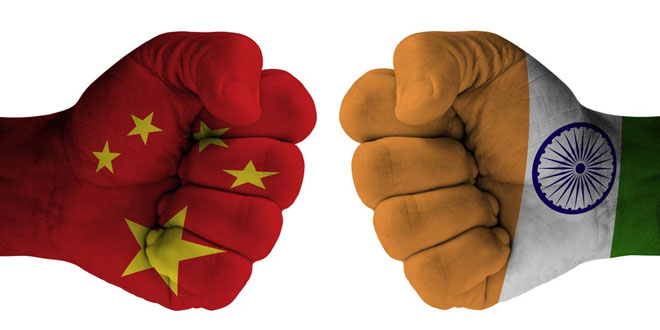Question: What is the meaning of concentration camps?
Answer: A prison where people are detained without the due process of law. The word evokes an image of a place of torture and brutal treatment
Question: How was French Indo-China formed?
Answer:
- French troops landed in Vietnam in 1858.
- By the mid-1880s, they had established a firm grip over the northern region.
- After the Franco-Chinese war, the French assumed control of Tonkin and Anaam, in 1887, French Indo-China was formed.
Question: ‘The French thought colonization necessary’. Give reasons.
Or
Why did the French think that colonies were necessary? Explain.
Answer:
- Supply of raw materials: Colonies were considered essential to supply of natural resources and other essential goods.
- To civilise the uncivilised people: Most of the European countries were of the opinion that the Afro-Asian people were uncivilised, and thought it was the mission of the ‘advanced’ European countries to bring the benefits of civilisation to these backward people.
Question: Who was Paul Bernard? What were his views regarding the development of colonies?
Or
Describe the views of Paul Bernard on the question of development of the colonies. Mention any three barriers to which were a hurdle in improving the economy of Vietnam.
Or
How did Paul Bernard argue in favor of economic development of Vietnam? Explain.
Answer: Paul Bernard was an influential writer and policy maker who suggested a model to develop the French colonies.
- Believer of development of colonies: He strongly believed that economic development of the colony was the only method which could help in serving the interests of the mother country.
- Economic circle: He argued that the purpose of acquiring colonies was to make profits. If the economy was developed and people had high per capita income, this would increase their purchasing power, and they would buy more goods. The market would consequently expand, leading to better profits for the French business.
According to Bernard there were following barriers:
- High Population levels.
- Low agricultural productivity.
- Extensive indebtedness amongst the peasants.
Question: Describe any three steps taken by the French to develop agriculture in Vietnam.
Or
Describe any five steps taken by the French for the development of the ‘Mekong Delta Region’.
Or
What did France do to increase cultivation in Vietnam? How did it affect the rice cultivation by 1931?
Or
Describe the major steps taken by the French to develop agriculture in Vietnam.
Answer:
- Building canals: The French began by building canals and draining land in the Mekong delta to increase cultivation. The vast system of irrigation works canals and earthworks – built mainly with forced labour, increased rice production.
- Building of ports: To export the surplus production French built ports. These ports were used to export the rice to the international market.
- Increasing area under rice cultivation: The area under rice cultivation went up from 274,000 hectares in 1873 to 1.1 million hectares in 1900 and 2.2 million in 1930. Vietnam exported two-thirds of its rice production and by 1931 had become the third largest exporter of rice in the world.
- Construction of rail network: Construction of a trans-Indo-China rail network that would link the northern and southern parts of Vietnam and China was begun. This final link with Yunan in China was completed by 1910. The second line was also built, linking Vietnam to Siam (as Thailand was then called), via the Cambodian capital of Phnom Penh.
- Establishing rubber estates: Many new rubber estates owned by the French businessmen were established. Indentured Vietnamese labour was widely used in the rubber plantations.
Question: Why did the French policy makers want to educate the people of Vietnam? Explain.
Answer:
- Civilizing Mission: Under this mission, the French claimed that they were bringing the modern civilization to the Vietnamese. They took for granted that Europe had developed the most advanced civilization. So it became the duty of the Europeans to introduce the modern ideas to the colony even if this meant destroying local cultures, religions and traditions. Education was seen as one way to civilize the ‘native’.
- To counter Chinese influence: The elites in Vietnam were powerfully influenced by the Chinese culture. To consolidate their power, the French had to counter this Chinese influence. So they systematically dismantled the traditional educational system and established French schools for the Vietnamese.
- To create Asiatic France Solidarity: There were many policy makers who felt that by learning French the Vietnamese would be introduced to the culture and civilization of France. This would create Asiatic France Solidarity. The educated people in Vietnam would respect French culture and see the superiority of French culture.
- To justify Colonial rule: French also wanted to educate the people of Vietnam so that through textbooks and other materials, they could justify the colonial rule.
Question: “There were two broad opinions on the new education policy introduced by the French in Vietnam”. Discuss.
Or
Explain the two opinions on the question of the use of the French language as the
medium of instruction in the French i schools established for the Vietnamese in Vietnam.
Or
Why did some French policy makers in Vietnam emphasis the need to use the
French language as the medium of instruction?
Answer:
- Supporters of French: Some policymakers were in favor of the French language as the medium of instruction, because according to them, this would promote French culture in Vietnam. By learning the language, they felt, the Vietnamese would be introduced to the culture and civilization of France. This would help to create an Asiatic France solidly tied to European France\ The educated people in Vietnam would respect French sentiments and ideals, see the superiority of French culture and work for the French.
- Supporters of Vietnamese: However, there were other group of thinkers who were opposed to French being the only medium of instruction. They suggested that Vietnamese be taught in lower classes and French in the higher classes. The few who learnt French and acquired French culture were to be rewarded with French citizenship.
Question: “The battle against the French colonial education became a part of the larger battle against colonialism and for the independence”. Explain.
Or
The schools became an important place for political and cultural battles in Vietnam against French colonialism. Support the statement with examples.
Answer:
Educational and colonial battle: The French sought to strengthen their rule in Vietnam through the control of education whereas Vietnamese intellectuals wanted to use education as a power to motive the students to resist against colonial rule.
Teachers and education: Teachers and students did not follow the curriculum framed by the French. While teaching, Vietnamese teachers used to modify the text which was against the Vietnamese.
Saigon Native Girls School incident: In the Saigon Native Girls School, when a Vietnam girl was asked to vacate front seat for a French girl, she refused to do so. She was expelled from the school. When angry students protested, they too were expelled. This led to an open protest by the people forcing the government to take the student back.
Students and education: To fight against colonial government, students formed various political parties such as Party of Young Annan. They also used print culture to highlight how the French rule was dangerous for the people. They issued national journals such as the Annanese Student.
Go East Movement: It was a national movement launched by the students to drove the French out of Vietnam. Under . this movement many Vietnamese students went to Japan to look for foreign help.
 Class Notes NCERT Solutions for CBSE Students
Class Notes NCERT Solutions for CBSE Students





